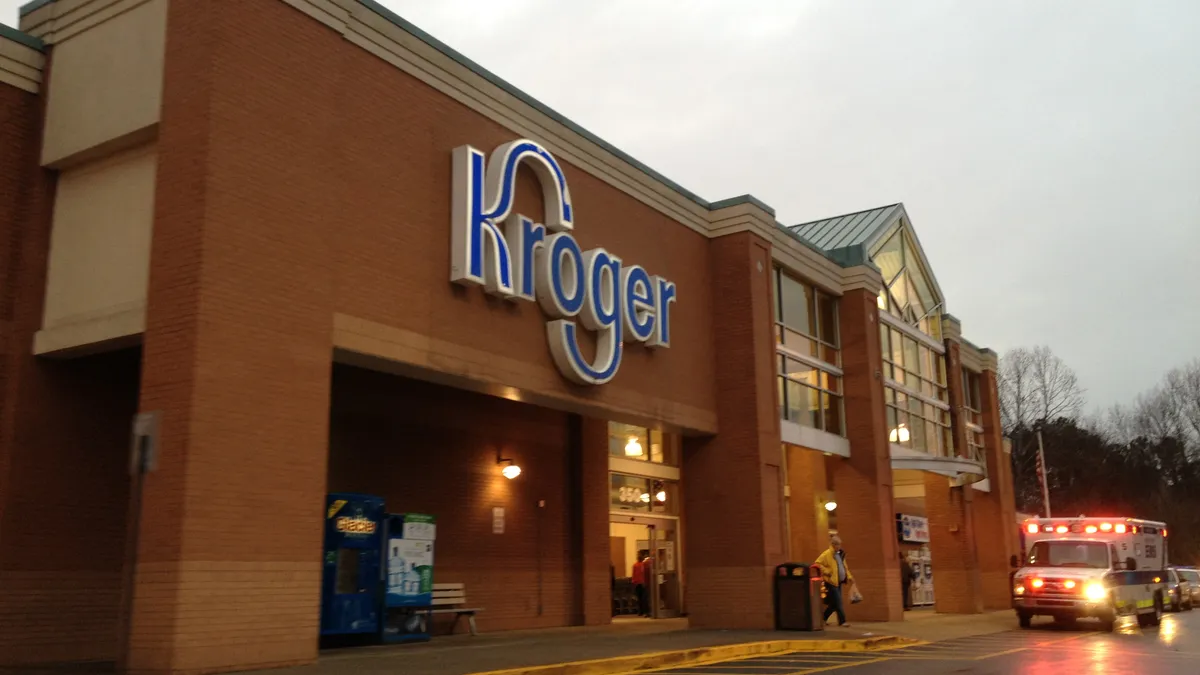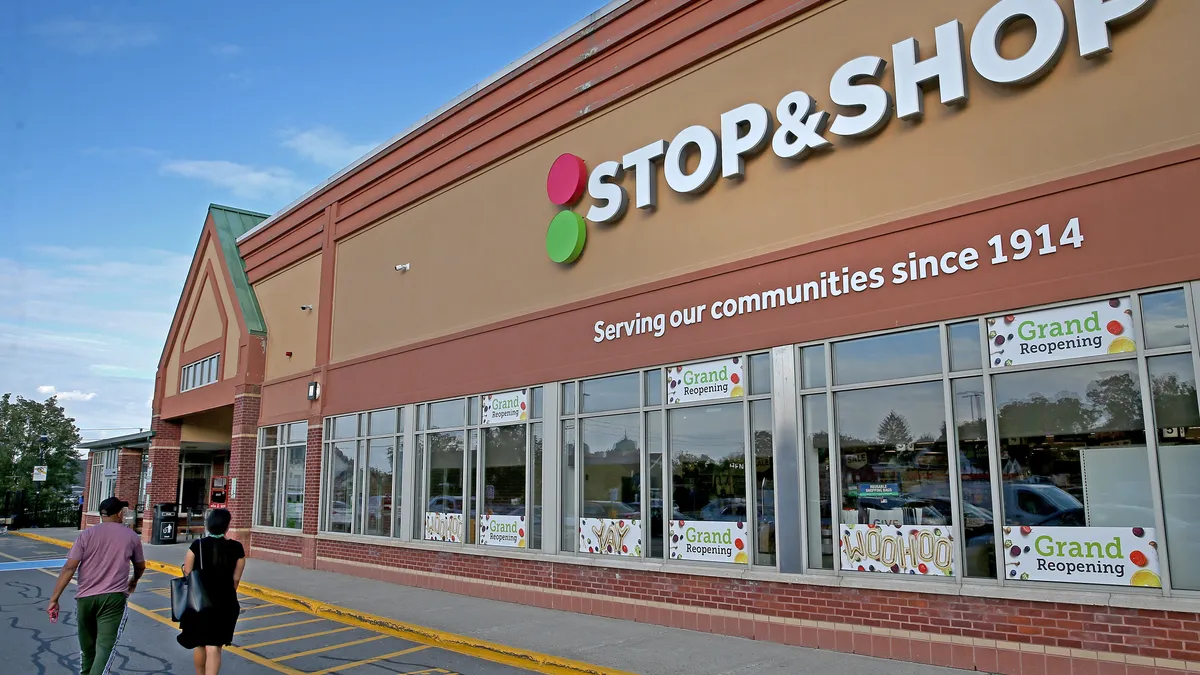Dive Brief:
- Kroger filed a lawsuit against Lidl last week for trademark infringement, claiming the discounter’s Preferred Selection private brand is too similar in name and appearance to its Private Selection brand, according to Own Brands Now.
- Kroger first objected to Lidl’s brand in March through the Trademark Trial and Appeal Board of the United States Patent and Trade Office. Lidl has yet to respond to the complaint, court documents show.
- In its filing, Kroger stated, "Lidl's actions herein have been willful and deliberate acts of infringement and unfair competition, which will cause irreparable harm and other damages to Kroger."
Dive Insight:
Private label has become a massive revenue stream for Kroger, with several store brands totaling more than $20 billion in annual sales. Its Private Selection gourmet brand, which the company started more than twenty years ago, includes everything from bagged coffee to packaged produce and baked goods.
With competition and pricing pressure on the rise, store brand sales are more important than ever for the Cincinnati-based grocer — so its protective instincts are certainly understandable. In the lawsuit filed last Friday against Lidl, Kroger claims it has “suffered and will continue to suffer irreparable injury” as a result of the discounter’s Preferred Selection brand, which also includes many gourmet products. According to Kroger, the similarity in name and appearance between the two brands leads shoppers to believe the two retailers are working together, or that both lines are the same.
Whether this is the case or not is certainly up for debate. What’s not in question is the importance of gourmet store brands that deliver higher margins and quality that can significantly boost a retailer’s image. Many grocers are seeing this upside and have developed tiered private label selections that also include value, natural and organic brands. According to the Private Label Manufacturers Association, store brands comprise 19% of grocery sales.
Lidl, whose store selection is 90% private label, has enjoyed some favorable early momentum with its first ten store openings along the east coast. A lawsuit could certainly disrupt that, especially if it’s successful and forces the discounter to make costly changes.
Up to this point, Lidl has been an industry disruptor, eager to take on established names in the U.S. grocery industry. Kroger’s lawsuit, though formally addressing trademark infringement, also functions as a competitive play. It’s a sign that established grocers have every intention of hitting back.










